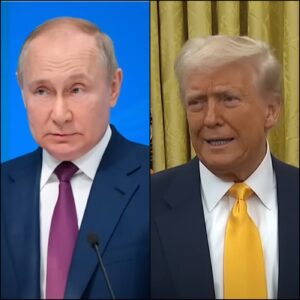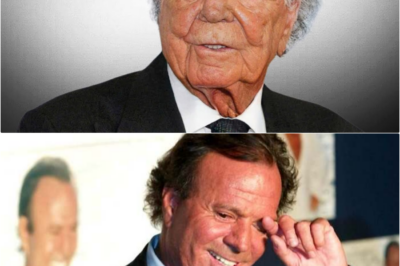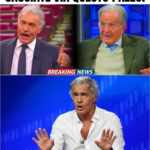Former President Donald Trump emphasized the urgent need for a ceasefire in Ukraine, stating that Presidents Vladimir Putin and Volodymyr Zelenskyy must come together to end the bloodshed. He highlighted the devastating loss of life, with thousands of soldiers dying every week, and urged immediate action to negotiate peace.

Host Trey Gowdy, on “Sunday Night in America,” argued that the simplest solution would be for Russia to withdraw from Ukraine. He condemned Russia’s invasion and the atrocities committed, including bombing hospitals, targeting power grids, and kidnapping children. He compared these actions to tactics used by terrorist organizations, such as Hamas and the Taliban.
As U.S. officials continue peace discussions in Saudi Arabia, General Keith Kellogg met with President Zelenskyy in Ukraine. Zelenskyy acknowledged the U.S. as a strong ally but expressed concern over shifting attitudes. The discussion touched on the importance of balancing public support with private critiques.
The conversation then shifted to the historical role of power and morality in conflicts. Europe has been urged to take on more responsibility, while the U.S. has historically played a leading role in global conflicts, often at great cost. Critics highlighted Putin’s pattern of silencing opponents, imprisoning Americans for political leverage, and engaging in other actions that raise concerns about war crimes.
National security experts Rob Greenway and Victoria Coates joined the discussion, analyzing the evolving narrative. Coates noted that Ukraine’s resilience in early 2022 had initially surprised many and suggested that a more decisive push could have forced Russia back. However, with Russia’s larger military reserves, a prolonged conflict could be disastrous for Ukraine, making negotiations crucial.
One key proposal discussed was Ukraine leveraging its natural resources to help repay U.S. support. Coates emphasized that no one is suggesting abandoning Ukraine but rather finding sustainable solutions to ensure its long-term stability.
Greenway outlined three major steps Trump is taking toward resolving the conflict: initiating negotiations with Putin, engaging a broad coalition of stakeholders, and recognizing the economic-security connection. He pointed to recent agreements between Ukraine and the U.S. involving minerals and economic partnerships that could strengthen post-war recovery.
The discussion then turned to China’s involvement in the Saudi Arabia talks. If China is considered a geopolitical rival, its role in the negotiations is controversial. Reports indicate that China is becoming increasingly active in the conflict, with North Korean troops assisting Russia and Chinese-owned companies moving into Russian-occupied Ukrainian territory for reconstruction efforts.
Addressing Russia’s political system, the panelists agreed that its elections are neither free nor fair, and Putin’s grip on power remains strong. While negotiations will be challenging, the panelists acknowledged that attempting to engage Putin diplomatically is still more progress than has been seen in recent years.
Gowdy concluded the discussion by expressing hope for a peaceful resolution. He acknowledged that while an ideal settlement would not require Ukraine to cede territory, the outcome remains uncertain. All eyes are now on Saudi Arabia as diplomatic efforts continue to bring the war to an end.
News
Nolwenn Leroy : Les Révélations Poignantes de ses 42 ans sur “l’Amour de sa Vie”
Dans l’univers parfois impitoyable du show-business français, rares sont les artistes qui parviennent à maintenir une frontière étanche entre les…
Julio Iglesias à 81 ans : Entre aveux sincères, secrets de famille et vérité sur sa santé, la légende se livre enfin
Julio Iglesias n’est pas seulement une voix ; il est un mythe vivant, une icône de la romance qui a…
Isabelle Nanty : Le combat secret d’une icône entre la vie et la mort après une hospitalisation critique
Le monde du cinéma français a retenu son souffle. Isabelle Nanty, figure emblématique et solaire de nos écrans, a traversé…
CLASH EXPLOSIF : Louis Boyard et Apolline de Malherbe, le duel qui a embrasé le direct !
L’arène médiatique a tremblé ce matin. Ce qui devait être une interview politique classique s’est transformé en un véritable champ…
Jean-Pierre Foucault en deuil : Les adieux déchirants à Marie-José Tramoni, la seule femme qu’il ait jamais épousée
Le paysage médiatique français est en émoi. Derrière l’image de l’animateur infatigable, toujours prêt à distribuer sourires et bonne humeur…
Sarah Knafo “rhabille” la gauche : le choc des vérités sur le Venezuela !
Le séisme politique : Sarah Knafo face à l’aveuglement idéologique Le paysage médiatique français vient d’être le théâtre d’une déflagration…
End of content
No more pages to load












